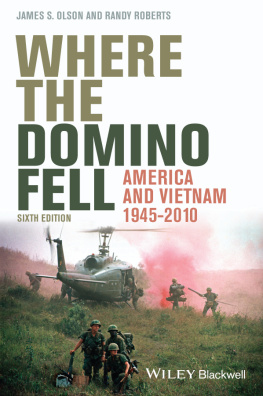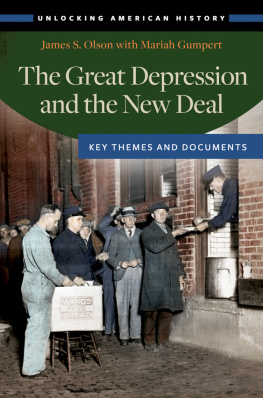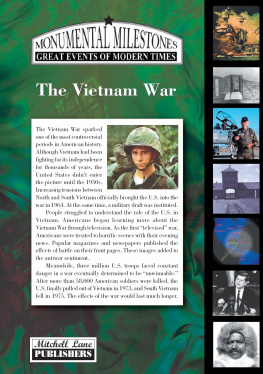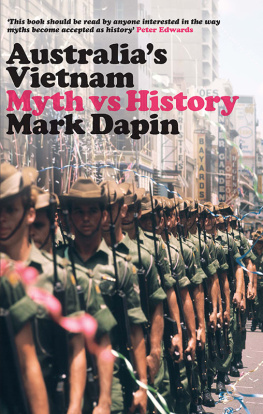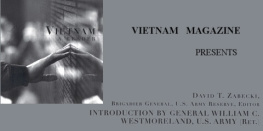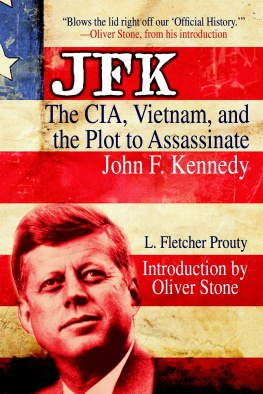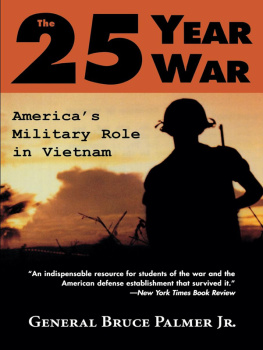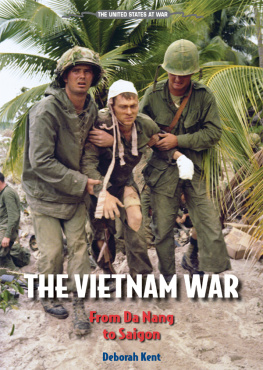
Table of Contents
This sixth edition first published 2014
2014 John Wiley & Sons, Inc
Edition History: Brandywine Press (5e, 2006); Blackwell Publishing, Ltd (revised 5e, 2008)
Wiley Blackwell is an imprint of John Wiley & Sons, formed by the merger of Wiley's global Scientific, Technical and Medical business with Blackwell Publishing.
Registered Office
John Wiley & Sons Ltd, The Atrium, Southern Gate, Chichester, West Sussex, PO19 8SQ, UK
Editorial Offices
350 Main Street, Malden, MA 02148-5020, USA
9600 Garsington Road, Oxford, OX4 2DQ, UK
The Atrium, Southern Gate, Chichester, West Sussex, PO19 8SQ, UK
For details of our global editorial offices, for customer services, and for information about how to apply for permission to reuse the copyright material in this book please see our website at www.wiley.com/wiley-blackwell.
The right of James S. Olson and Randy Roberts to be identified as the authors of this work has been asserted in accordance with the UK Copyright, Designs and Patents Act 1988.
All rights reserved. No part of this publication may be reproduced, stored in a retrieval system, or transmitted, in any form or by any means, electronic, mechanical, photocopying, recording or otherwise, except as permitted by the UK Copyright, Designs and Patents Act 1988, without the prior permission of the publisher.
Wiley also publishes its books in a variety of electronic formats. Some content that appears in print may not be available in electronic books.
Designations used by companies to distinguish their products are often claimed as trademarks. All brand names and product names used in this book are trade names, service marks, trademarks or registered trademarks of their respective owners. The publisher is not associated with any product or vendor mentioned in this book.
Limit of Liability/Disclaimer of Warranty: While the publisher and authors have used their best efforts in preparing this book, they make no representations or warranties with respect to the accuracy or completeness of the contents of this book and specifically disclaim any implied warranties of merchantability or fitness for a particular purpose. It is sold on the understanding that the publisher is not engaged in rendering professional services and neither the publisher nor the authors shall be liable for damages arising herefrom. If professional advice or other expert assistance is required, the services of a competent professional should be sought.
Library of Congress Cataloging-in-Publication Data is available for this title
ISBN 9781444350500
A catalogue record for this book is available from the British Library.
Cover image: Troops of the 1st. Cavalry Division during an operation near the Ashau Valley in the northern part of South Vietnam, 1968. Philip Jones Griffiths / Magnum Photos
Cover design by Simon Levy
Preface
In 1984, less than a decade after the fall of South Vietnam, American ambivalence about the war exploded into the popular culture with Sylvester Stallone's film First Blood and rock star Bruce Springsteen's megahit Born in the U.S.A. The earliest Rambo movie could almost be taken as an antiwar film. Sylvester Stallone's John Rambo in First Blood is a troubled Vietnam veteran hunted by backwater police and gun wielders of a type ordinarily identified with blood-hungry patriotism. If that is the message, the producers of the Rambo movies apparently later changed their focus. In his return to the screen, Rambo is a vehicle for hyperpatriotic fantasies, a muscled and fearless avenger of freedom against Vietnamese communists, Soviet invaders of Vietnam, and surely any other enemies of the American Way. The introspection that makes its tentative, half-articulate presence in First Blood gives way to a dreamscape of retaliation and triumph.
John Rambo as Stallone plays him is a contradictory symbol of what Americans frustrated by their country's failure in Vietnam think should have been done there. The more massive deployment of force that they are convinced could have achieved victory would be technological. But Rambo pits brain and sinew against the superior firepower of his enemies; he is our Vietcong guerrilla. That confusion of image, coupled with the half-start in First Blood toward a quite different sensibility about the Vietnam experience, suggests the difficulty that Americans have had in getting a clear grasp not only of the war itself but of their feelings about it.
Springsteen's Born in the U.S.A. rocketed up the pop charts in the midst of President Ronald Reagan's campaign for reelection. Actually an ode to the plight of Vietnam veterans sent abroad to kill the yellow man and returning home to a postwar nightmare of poverty, unemployment, and economic decay, the song became a virtual patriotic anthem, with concertgoers waving American flags as Springsteen belted out the lyrics. Conservative columnist George Will attended a concert and came away convinced that Springsteen had tapped into a subterranean vein of American optimism. I have not a clue about Springsteen's politics, if any, but flags get waved at his concerts while he sings of hard times. He is no whiner, and the recitation of closed factories and other problems always seemed punctuated by a grand, cheerful affirmation. Even in the midst of defeat, Americans remained in a quandary about Vietnam.
That, so we hope to show throughout this book, had been the trouble from the beginning. War is, above all else, a political event. Wars are won only when political goals are achieved. Troops and weapons arelike diplomacy and moneyessentially tools to achieve political objectives. The United States went into Indochina after World War II with muddled political objectives. It departed in 1975 after a thirty-year effort with political perceptions as blurred as they had been in the beginning. At that beginning, Ho Chi Minh defined victory as independence from foreign occupation and reunification of North Vietnam and South Vietnam under a communist regime. By the end of April 1975, although Ho was in his grave, victory came on his terms.
James S. Olson
Randy Roberts
Prologue
LBJ and Vietnam
On November 22, 1963, as his plane taxied down the runway at Andrews Air Force Base, President Lyndon B. Johnson could have counted up the days in his head. President John F. Kennedy had died only a few hours before. The assassination fulfilled Johnson's lifelong dream to become president of the United States, but in his heart sadness competed with ambition. The presidential election of 1964 was less than a year away, and the Twenty-Second Amendment allowed him to run in his own right, legitimize his presidency, and then seek reelection in 1968. If he astutely shuffled the deck of Washington politics, he could live in the White House until January 21, 1973, not quite the thirteen-year reign of Franklin D. Roosevelt, but long enough to distinguish him in history. Lest he appear inappropriately political, Johnson kept a low profile while the nation mourned Camelot.
On January 1, 1964, however, Johnson greeted the New Year with relief and confidence, or perhaps hubris, possessed only by anyone out to change the world. With JFK interred at Arlington National Cemetery, the eternal flame already burning over his grave, and the horrific events of November 1963 receding somewhat into the past, the president finally could think, and talk, about the future. Desperate for approval and obsessed with his place in history, he yearned to join the ranks of George Washington, Abraham Lincoln, and Franklin D. Roosevelt, whom historians universally regarded as the nation's greatest presidents. On the foundation of Roosevelt's New Deal and Truman's Fair Deal, he intended to build the Great Society, where prosperity replaced poverty and tolerance quenched the fires of racism. He began mulling around what would become the War on Poverty, the Civil Rights Act of 1964, and the Voting Rights Act of 1965. Had Vietnam not spun out of control, Johnson might have joined the pantheon of greatness, but Indochina and its miseries would steadily crowd out any good he achieved.
Next page
